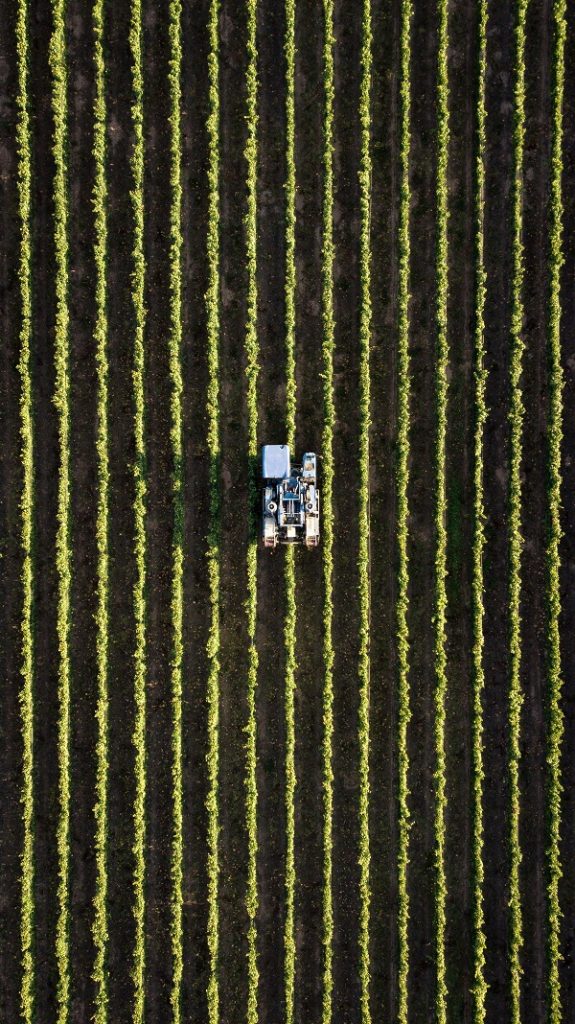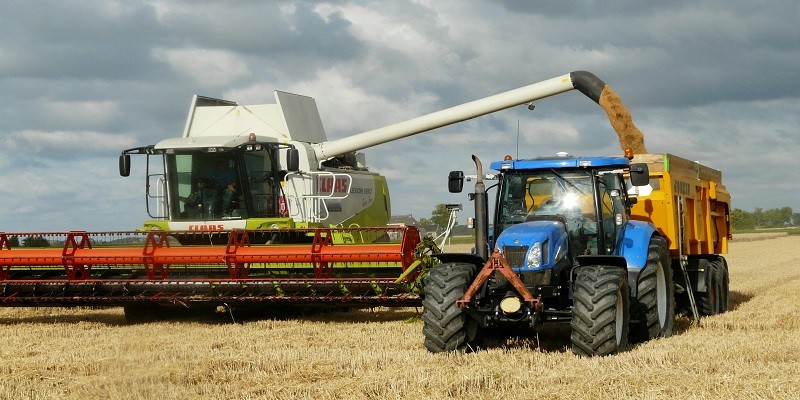The Role of Technology in Sustainable Agriculture
Technology plays a crucial role in sustainable agriculture by improving efficiency, reducing waste, and promoting environmentally friendly practices for long-term food production. The integration of advanced tools and systems enables precision farming techniques, such as remote sensing, precision irrigation, and smart pest management, which optimize resource utilization and minimize environmental impact while maximizing yield potential.
These technological advancements also facilitate data-driven decision-making and empower farmers to make informed choices regarding crop selection, nutrient management, and soil conservation. In addition, emerging technologies like vertical farming, hydroponics, and agri-robotics offer alternative approaches to conventional agriculture, reducing land requirements and enabling year-round production.
Overall, technology-driven solutions pave the way for a more sustainable and resilient agriculture industry that can meet growing global food demands while preserving natural resources and biodiversity.
Advancements In Agricultural Technology

The agricultural industry has seen remarkable advancements in technology, revolutionizing the way farming practices are carried out.
Impact Of Automation
Automation in agriculture reduces manual labor and enhances efficiency in tasks such as planting and harvesting crops.
Role Of Precision Farming
Precision farming employs technology like GPS and sensors to optimize crop production and resource management.
Sustainable Practices In Agriculture
Agriculture plays a critical role in ensuring food security and safeguarding the environment. In recent years, there has been a growing focus on adopting sustainable agriculture practices to minimize the negative impact on natural resources and promote long-term agricultural productivity. In this regard, advanced technologies have emerged as powerful tools for achieving sustainability in agriculture. From enhancing soil health to implementing resource-efficient irrigation systems, technology is revolutionizing the way we practice agriculture for a greener and more sustainable future.
Importance Of Soil Health
Healthy soil forms the foundation of sustainable agriculture. It not only provides essential nutrients to crops but also acts as a reservoir for water and prevents soil erosion. By maintaining soil fertility and structure, farmers can improve crop yields and minimize the need for chemical inputs. Technology has revolutionized soil health management by providing new tools and techniques for soil analysis and monitoring. With the help of remote sensing technologies, satellite imagery, and soil sensors, farmers can precisely assess soil conditions, including nutrient levels, moisture content, and pH balance. This enables them to make data-driven decisions regarding the application of fertilizers, water management, and crop rotation, ultimately promoting sustainable soil health management practices.
Resource-efficient Irrigation Systems
Agricultural practices heavily depend on water resources, making efficient irrigation systems crucial for sustainable agriculture. Traditional irrigation methods often result in excessive water usage, leading to water scarcity and environmental degradation. However, technology has introduced innovative irrigation systems that maximize water use efficiency. Drip irrigation, for example, delivers water directly to the plant roots, reducing water wastage through evaporation and runoff. Similarly, precision irrigation systems utilize advanced sensors and weather data to provide the right amount of water precisely when and where it is needed. By minimizing water consumption and increasing irrigation efficiency, technology-driven irrigation systems contribute to sustainable water management and conservation.
Overall, the integration of technology in sustainable agriculture has brought tremendous benefits to farmers and the environment alike. From supporting soil health management to implementing resource-efficient irrigation practices, technology is revolutionizing agricultural processes, helping us move towards a more sustainable and environmentally friendly farming ecosystem.
Integration Of Technology And Sustainable Agriculture
Technology has emerged as an essential tool for achieving sustainability in agriculture. Through the integration of technology, farmers can optimize their practices and enhance productivity while promoting environmentally friendly methods. This integration allows for more precise, efficient, and sustainable agricultural operations.
Smart Crop Monitoring
Smart crop monitoring is revolutionizing the way farmers manage their crops. Through the use of sensors and remote monitoring systems, farmers can now gather real-time data on various aspects of their crops’ health and growth.
This data includes information on soil moisture levels, temperature, humidity, and nutrient content. By having access to this data, farmers can make informed decisions regarding irrigation, fertilization, and pest control. This targeted approach minimizes waste and reduces the use of resources, making agriculture more sustainable.
Utilization Of Big Data In Agriculture
Big data plays a crucial role in sustainable agriculture by providing valuable insights and predictive analytics. By collecting and analyzing vast amounts of data, farmers can identify patterns and trends that would otherwise go unnoticed.
| Increase Crop Yield | Improve Pest Control | Enhance Resource Management |
|---|---|---|
| Analyzing weather patterns to optimize planting and harvesting times Identifying areas of soil nutrient deficiencies for targeted fertilization | Predicting pest outbreaks based on climate conditions and historical data Implementing precision spraying techniques to reduce chemical use | Optimizing water usage by identifying areas with excessive irrigation Efficiently managing machinery and farm equipment through predictive maintenance |
By harnessing the power of big data, farmers can increase crop yield, improve pest control, and enhance resource management. These data-driven approaches contribute to a more sustainable and profitable farming system.
Challenges And Future Possibilities
The Role of Technology in Sustainable Agriculture: Challenges and Future Possibilities
Adapting To Climate Change
As climate change poses a significant threat to agriculture, innovative technologies can help farmers adapt. The integration of AI and data analytics aids in predicting weather patterns for timely farming decisions.
Innovative Agri-tech Solutions
Cutting-edge technologies like precision farming and drones revolutionize agricultural practices, enhancing efficiency and maximizing yields sustainably.
Frequently Asked Questions
How Does Technology Contribute To Sustainable Agriculture?
Technology contributes to sustainable agriculture by optimizing resources, improving efficiency, and implementing data-driven decision-making for better crop yields.
What Are Some Examples Of Technology Used In Sustainable Agriculture?
Examples include precision farming, IoT sensors, drone technology, and AI-powered crop monitoring for enhanced productivity and resource management.
Can Technology Help Farmers Reduce Their Environmental Impact?
Yes, technology enables farmers to adopt eco-friendly practices, minimize chemical usage, and conserve water resources through advanced irrigation techniques.
How Does Digital Innovation Support Soil Health In Agriculture?
Digital innovation facilitates soil mapping, real-time nutrient analysis, and AI models to enhance soil health management and promote sustainable farming practices.
What Role Does Data Analytics Play In Sustainable Agriculture?
Data analytics provides insights for predictive modeling, smart resource allocation, and disease detection, leading to improved sustainability and cost-effective farming practices.
Conclusion
Technology continues to revolutionize sustainable agriculture, enhancing efficiency and productivity while minimizing environmental impact. Farmers have harnessed innovation to meet increasing demands and ensure long-term viability. The adoption of smart solutions and data-driven practices is paving the way for a more resilient and sustainable future in agriculture.

